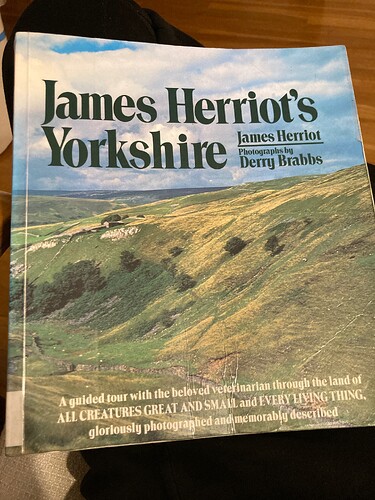Many of the farmers seem to be straddling the line between believing that they know the best remedies and recognizing that they had better call the vet if they want to give their animal a fighting chance.
I think James Herriot would be quick to say that it’s not a debate, i.e., not knowledge VS. experience – but a marriage of knowledge AND experience that leads to the greatest success.
One of the problems with “Uncle” and those like him is that it isn’t really experience they are promoting, it’s superstition. In chapter 32, where James deals with Mr. Handshaw’s many inane suggestions (shout into the cow’s lungs, cut off its tail, make it look at a strange dog, etc.), he writes, “It seemed to me that all the forces of black magic had broken through and were engulfing me and that my slender resources of science had no chance of shoring up the dyke.”
Interestingly though, science doesn’t win in that particular case — at least not “textbook” science. James is confident the cow has a broken pelvis and determines that there is no hope. But the cow is fine the next morning, which Mr. Handshaw attributes to one of his own home remedies: putting a fresh-killed sheep skin on the cow’s back.
A flummoxed James consults Siegfried, who says:
“The old sheep skin, eh? Funny thing – you’ve been in the Dales over a year now and never come across that one. Suppose it must be going out of fashion a bit now but you know it has a grain of sense behind it like a lot of these old remedies. You can imagine there’s a lot of heat generated under a fresh sheep skin and it acts like a great hot poultice on the back–really tickles them up after a while, and if a cow is lying there out of sheer cussedness she’ll often get up just to get rid of it” (p. 196).
As for the supposed broken pelvis, Siegfried says:
“Well, James, you’re not the first to have been caught that way. Sometimes the pelvic ligaments don’t tighten up for a few days after calving and you get this effect.”
So James comes up short on both knowledge and experience, but he takes the lesson to heart and the long-lived cow is a constant reminder to him that, as Siegfried put it, “There’s a very fine dividing line between looking a real smart vet on the one hand and an immortal fool on the other.”
